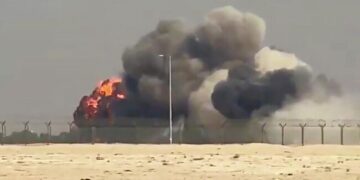
Pakistan Army Chief General Asim Munir has once again stirred diplomatic tensions by issuing fresh threats against India, accusing it of unprovoked aggression and destabilizing the South Asian region. Speaking at the Pakistan Naval Academy in Karachi, Munir labelled Pakistan as a “net regional stabiliser” and claimed that Islamabad has always responded “resolutely” to Indian military actions.
This controversial statement marks the second time in weeks that Munir has used inflammatory rhetoric targeting India. He alleged that India had launched two unprovoked attacks against Pakistan, which he described as a reflection of “a troubling absence of strategic foresight.”
“Despite provocations, Pakistan displayed restraint and maturity, reaffirming its commitment to regional peace,” Munir stated, presenting Pakistan as a peace-seeking nation caught in an aggressive neighborhood.
Repeating the ‘Jugular Vein’ Narrative
In his address, Munir once again raked up the Kashmir issue, describing the region as Pakistan’s “jugular vein”—a term historically used by Islamabad to assert territorial claims over India-administered Jammu & Kashmir. “Kashmir is our jugular vein; it will remain our jugular vein; we will not forget it,” Munir declared, echoing Pakistan’s longstanding narrative on the disputed region.
The Army Chief added that Pakistan stands firm in advocating a “just resolution of the Kashmir conflict in accordance with United Nations resolutions and the aspirations of the Kashmiri people.”
Link to Recent Terror Incidents
Munir’s remarks come on the heels of a brutal terror attack in Pahalgam, Jammu & Kashmir, where over two dozen Indian tourists were killed by Pakistan-backed terrorists. The massacre prompted India to launch Operation Sindoor, targeting terror launchpads deep within Pakistan’s territory. This operation marked a decisive shift in India’s counterterrorism posture and also led to the Indus Waters Treaty being put on hold, signaling growing friction between the nuclear-armed neighbors.
Indian officials have noted that Munir’s provocative statements closely follow these developments, raising questions about Islamabad’s intent to de-escalate or further inflame tensions in the region.
Justifying Support for Militancy?
Critics in New Delhi have also pointed out that Munir’s language attempts to glorify terrorism under the guise of a legitimate freedom struggle. During his speech, he reiterated Pakistan’s “political, moral, and diplomatic support” for the so-called Kashmiri resistance, a position often viewed in India as a thinly veiled endorsement of militancy and cross-border terrorism.
“Pakistan’s stance remains unchanged. We support the struggle of our Kashmiri brothers against India’s illegal occupation,” Munir said, maintaining a hardline stance that contradicts Islamabad’s claimed commitment to peace.
India’s Response and Global Implications
India’s Ministry of External Affairs has so far refrained from an official response to Munir’s latest speech. However, diplomatic experts suggest that India may escalate international pressure on Pakistan by highlighting its support for terrorism and aggressive posturing in global forums, particularly amid renewed U.S.-Pakistan diplomatic engagement.
Sources also indicate that Munir’s remarks may be aimed at a domestic audience, attempting to rally support within Pakistan’s armed forces and conservative factions by stoking nationalism and playing the Kashmir card.
Regional Peace at Stake
Asim Munir’s continued threats and rhetoric cast a shadow on prospects for peace in South Asia. With the Kashmir dispute once again at the center of heated exchanges, regional stability remains fragile. Observers warn that unless cooler diplomatic heads prevail, the subcontinent may be heading toward another period of heightened tensions.
India has made it clear that any form of aggression or proxy warfare will be met with firm retaliation. Meanwhile, Pakistan’s leadership continues to assert its role as a stabilizer, while actions on the ground — including terror linkages — suggest otherwise.
With both countries possessing nuclear capabilities, the international community remains watchful, urging restraint and dialogue.















